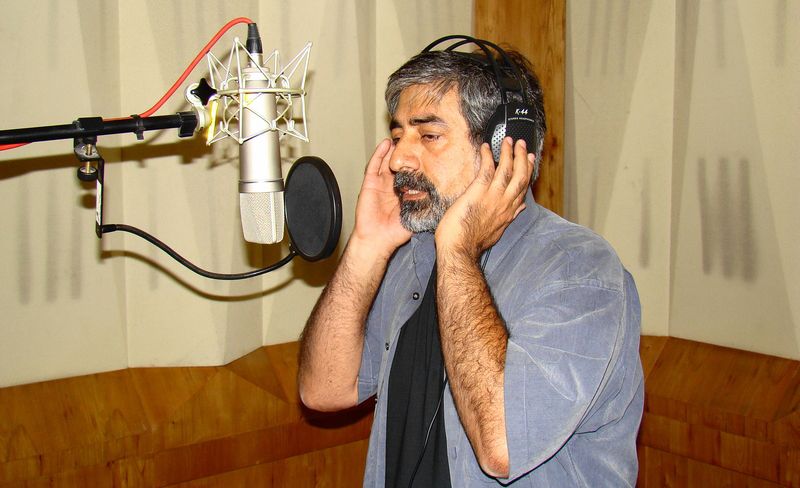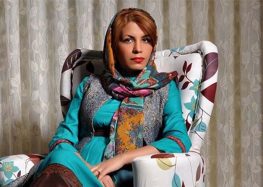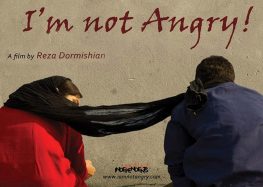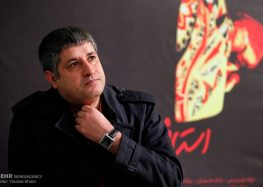Rouhani Administration Continues Ban on Popular Musician
Singer-songwriter Hossein Zaman, who has been banned from performing for nearly ten years and lost his university teaching post due to his political views, says Rouhani administration officials in Iran are refusing to allow him to resume his artistic career because he has continued to openly express criticism about the country’s affairs.
“I used to have a blog called Kabootar e Ghasedak (Messenger Pigeon) which was blocked a few years ago, where I expressed criticism on [various] political and social issues. Then I continued on Facebook. I was comfortable with being critical in my speeches and meetings as well. As a result I ended up in court and I lost my occupations,” Zaman told the International Campaign for Human Rights in Iran.
What is noteworthy in Zaman’s case is the direct involvement of the Rouhani administration in his repression. During Rouhani’s 2013 presidential campaign, he pledged to give more freedom to artists and cultural figures.
In a meeting with artists and cultural figures on January 8, 2014, President Rouhani stated, “Viewing the arts as a security concern is the biggest mistake…If there is no freedom, true artistic creations would not be produced. We cannot create and produce arts on order. Any type of security atmosphere can nip arts in the bud.”
Yet in addition to Hossein Zaman, authorities in the Ministry of Islamic Culture and Guidance, which is under the direct authority of President Rouhani, have over the last two years banned or prevented the work of numerous writers, publishers, filmmakers, musicians, and others. While Rouhani posits himself as a force for greater cultural openness, pushing back against hardliners in Iran who would have it otherwise, officials who are under his administration’s direct authority have continued to implement policies of artistic and cultural repression.
In the music sphere, the Ministry of Culture and Islamic Guidance under the Rouhani administration has canceled dozens of concerts in Tehran and other cities. On October 19, 2015, the Mehr News Agency published the names of 24 well-known singers, including Mohsen Chavoshi, Reza Sadeghi and Homayoun Shajarian, who had been recently banned from performing because they gave their music videos to international Persian-language media or had “committed violations at concerts abroad.”
The Ministry of Culture and Islamic Guidance official in charge of music affairs, Farzad Talebi, and Deputy Minister for Artistic Affairs, Ali Moradkhani, denied Mehr’s report. The Minister himself, Ali Jannati, said on October 20, 2015, “We don’t have anyone on an official blacklist.”
A day after the Minister’s comments, Hossein Zaman wrote on his Facebook page, “Tell me, who sent you letters to stop you from carrying out your duties and ban me from my artistic work? I will stand up to them myself. If you are afraid, I’m not. Your silence tells me you’re guilty, and unfortunately I must call you incompetent and overly cautious.” This note was quoted by a number of international Persian-language media and domestic Iranian media outlets.
After graduating in communication engineering, Zaman, 46, became a communications specialist for Iran’s Revolutionary Guards’ naval force during the 1980-1988 Iran-Iraq war.
“In 1998, Ali Larijani, who was the head of state broadcasting at the time, wrote a letter that none of my work should be played on state television or radio. I saw the letter myself, “ said Zaman. “I thought maybe Ali Larijani was not a fan of my music. Then I realized I’m not a favorite of any of the later administrations either.”
Zaman was court-martialed in 1999 by Branch 14 of the Military Court for making political statements in
his blog in support of reformists while being a member of the Revolutionary Guards. He was initially sentenced to 15 years in prison but the sentence was reduced to a 91-day suspended sentence on appeal. In 2001, Zaman was forced to retire from the Revolutionary Guards.
In 2012, his contract as a professor of electronics and communications at Sharif University was not renewed. Zaman was a critic of conservatives and supporter of reformist candidate Mir Hossein Mousavi in the disputed 2009 presidential elections. His political views cost Zaman his artistic career, as state radio and television stations [Islamic Republic of Iran Broadcasting, or IRIB] stopped airing his music.
“I was always critical of the state broadcasting organization’s policies regarding music. They wanted to dictate what musicians should produce. I refused to participate in shows I didn’t like or sing state-sponsored songs,” Zaman said in his interview with the Campaign.
For the past decade, Zaman has not been allowed to perform. “When Rouhani was elected president, I went back to the Ministry of Culture and Islamic Guidance Ministry and asked [the Ministry] why? They said they had no problem with me but there was an order from higher ups not to issue a permit. I asked who would, and why would someone give such an order? But so far no one has given me an answer,” said Zaman. “My life has been very difficult…I have had no source of income for the past three years….”







